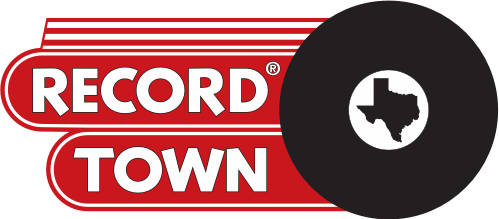Rock’s Great “Lost” Albums of the Eighties: Rocky Hill

Rock’s Great “Lost” Albums of the Eighties: Rocky Hill
BY EVERY RECORD TELLS A STORY on JULY 4, 2013
When you think of rock n roll brothers, you generally picture squabbling siblings, such as Ray and Dave Davies, Noel and Liam Gallagher, Rich and Chris Robinson or Dave and Ed Milliband. Perhaps only Eddie and Alex Van Halen have really made things work apparently smoothly, and that’s possibly because one of them is a drummer and is thus a) not in the greatest starting position to try to overshadow his guitar playing show-off (as he might otherwise see it) of a brother and b) probably not that bright (insert your own “drummer” joke here). Not that Eddie has exactly emerged unscathed from his life in rock n roll as revealed by squabbling ex-lead singer Sammy Hagar…
Most of these brothers’ biggest miscalculations was being in the same band as each other, and like competing silverback gorillas (albeit in Liam Gallagher’s case a particularly unintelligent silverback gorilla) vying to be Alpha Male.
A more elegant solution was to do what brothers Dusty and Rocky Hill did. After a few years (between ’66 and ’69) of playing together in a psychedelic rock band called American Blues with a drummer called Frank Beard, they decided to part company and stay well out of each other’s bands, perhaps (if occasion arose) calling each other by phone from time to time, meeting at Christmas and leaving rude messages on each other’s Facebook timeline… Rocky left the band, a chap called Billy Gibbons joined Beard and Dusty Hill, and ZZ Top was formed… Or as Rocky put it in an interview for the Houston Chronicle in 1979, “Dusty wanted to play rock n roll. Wanted to make some money. And he did… I wanted to play some blues. And I did.”
After parting company with his brother, Rocky played bass for Lightnin’ Hopkins earning $5 a night. He also played regular solo shows, but it took until 1982 for his first solo album, Texas Shuffle, to appear. Six years later, he released a second album – a self-titled collection of exceptional blues songs and it is this album I want to highlight as the second of my “Great Lost Albums” from the eighties. “Rocky Hill” attracted little press, but as the brother of Dusty Hill, he was at least something curious and interesting to write about. But it should have been more than that. Rocky’s blistering wah-wah soloing, his time-scarred voice and the great blues riffs and songs just sounded amazing. It was like the ZZ Top of 1973 had come forward 15 years, ditched the synthesizers and made a blues record. Or to put it another way, imagine if Stevie Ray Vaughan replaced Billy Gibbons in ZZ Top.
Opening track “HPD” told the story of an encounter with a gun-toting policeman from the Houston Police Department and combined amusing lyrics with an infectious riff. “New York Turnaround” saw some wicked slide guitar and a great horn section, whilst everything that’s great about “Bad Year for the Blues” is in the following lyric:
“I played with Jimmy Reed back in 1968. I tried to thank him then, but he was drunk and not in real good shape. You know I nearly cried because he gave me my first slide. It was a bad year for the blues.” What’s more, that’s a true story.
If “I’ll Be There” was infected slightly with those questionable eighties production vices of “tastefulness” and “sax solo” mixed with some soulful female backing vocals, then we must remember how much worse the likes of Curtis Stigers were a few years later. It’s the only time the record sounds dated.
On side 2, (remember those?) “Take My Love” and “Hoo Doo Eyes” continued with aplomb, the latter a standout. “Mississippi Delta Blues” sounds exactly like you’d expect it to – just one man and his guitar – whilst “Walked from Dallas” sounds to me like a proper Chicago-Blues style number complete with harmonica and piano solos. It’s the sort of song Jools Holland has spent his life trying to make, but then if you try to take a boogie woogie piano to a Razorlight song it’s never going to work. Indeed, some might say the only thing you should take to a Razorlight song is a flaming torch…but not me, clearly…
Indeed, perhaps if Later…with Jools Holland had been on TV back in ’88 we might have been lauding Rocky Hill like we do Seasick Steve now. Sadly, Rocky died in 2009 leaving behind just the three solo albums, plus those two American Blues albums. But this record is a special one. Not only is it a terrific album even now, it was also my first real introduction into the blues, along with Stevie Ray Vaughan and one other record that I will reveal later in my “lost album” series. The Rocky Hill album is not easy to find, but it does crop up on eBay. You can also find a couple of tracks on Spotify.









